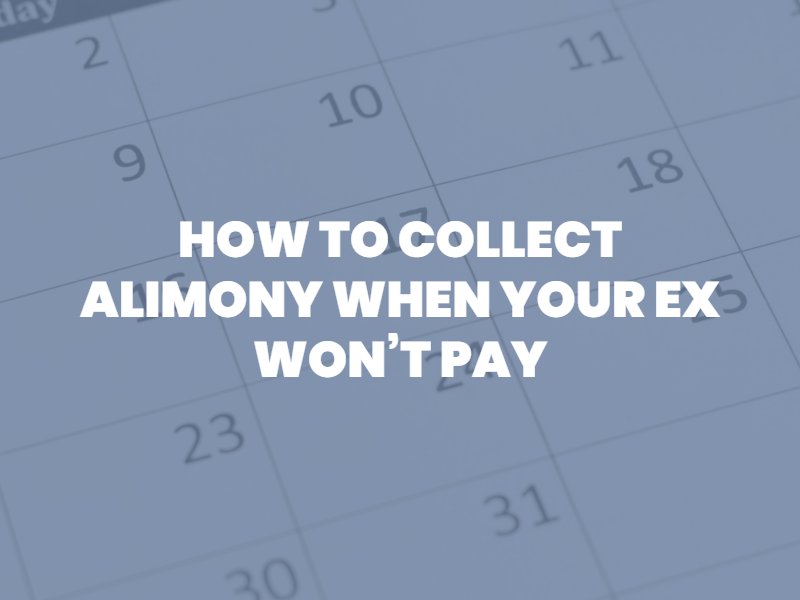Whether your ex lost a job, suffered a medical problem, or simply doesn’t want to make alimony payments, you can and should get to the bottom of the problem and come to a compromise that works for both of you. Alimony payments are your court-given claim to a certain amount of money from your spouse every month. The court doesn’t take payment deficits lightly and offers options to help fully protect your rights after a divorce.
Find Out Why Your Spouse Hasn’t Paid
The first step toward collecting alimony from your ex-spouse is finding out why he or she has neglected to pay. If your spouse involuntarily lost a job or suffered an injury/disability, the courts can reduce or suspend alimony until your spouse returns to work. If the payments don’t start again when your ex’s situation has improved, discuss taking him or her to court with an attorney.
If your ex simply refuses to make a payment, the process for collecting alimony is different. Spouses often refuse to make alimony payments because they resent the fact that they have to continue to support an ex-spouse after divorce. In these situations, it can be exceedingly difficult to get the spouse to make alimony payments on time and in full. If this is the case, there are steps you can take to force your ex to pay what he or she legally owes you.
File a Motion With the Court
If your spouse refuses to pay for no legitimate reason, you have to return to court for help. Hire an alimony attorney or file a claim on your own with the appropriate legal paperwork. Contact your local court or go online to locate the right documents. Ask a judge to order your spouse to make the payments and keep up with payments in the future. The courts call this a motion for contempt or enforcement. Hiring an attorney who can draft legal motions and persuasively represent you in court can go a long way toward securing a judgment in your favor.
If the court rules on your side, the judge can order the county to confiscate your delinquent spouse’s financial estate and rents and profits from real estate. They can hold your spouse in contempt of court and even order jail time for continued failure to obey the law. The courts may also withhold part of your spouse’s income, award you part of your spouse’s bank accounts and other assets, and issue a money judgment against your spouse with interest. The courts offer a variety of solutions for spouses who need help collecting alimony from negligent exes.
Consider a Qualified Domestic Relations Order
A Qualified Domestic Relations Order, or QDRO, is an effective mechanism for ensuring you actually receive the alimony payments your ex-spouse owes you. It’s a court order that recognizes a payee’s right to receive benefits payable to a participant in a retirement plan. A judge can use a QDRO to order that you receive part or all of your ex’s retirement benefits. This includes pension plans, 401Ks, and other plans besides IRAs. This is an excellent source for collecting past due alimony payments and even securing future payments.
Your alimony attorney in Orange County will have numerous ways of getting your ex to pay alimony through the California courts. Judges don’t take kindly to spouses who blatantly refuse to make court-ordered spousal support payments and have a number of tools to ensure spouses make payments consistently in the future. Whether the courts need to file a QDRO, hold your spouse in contempt of court, or place a lien on his or her assets, they’ll come to a solution that’s in your best interest.




